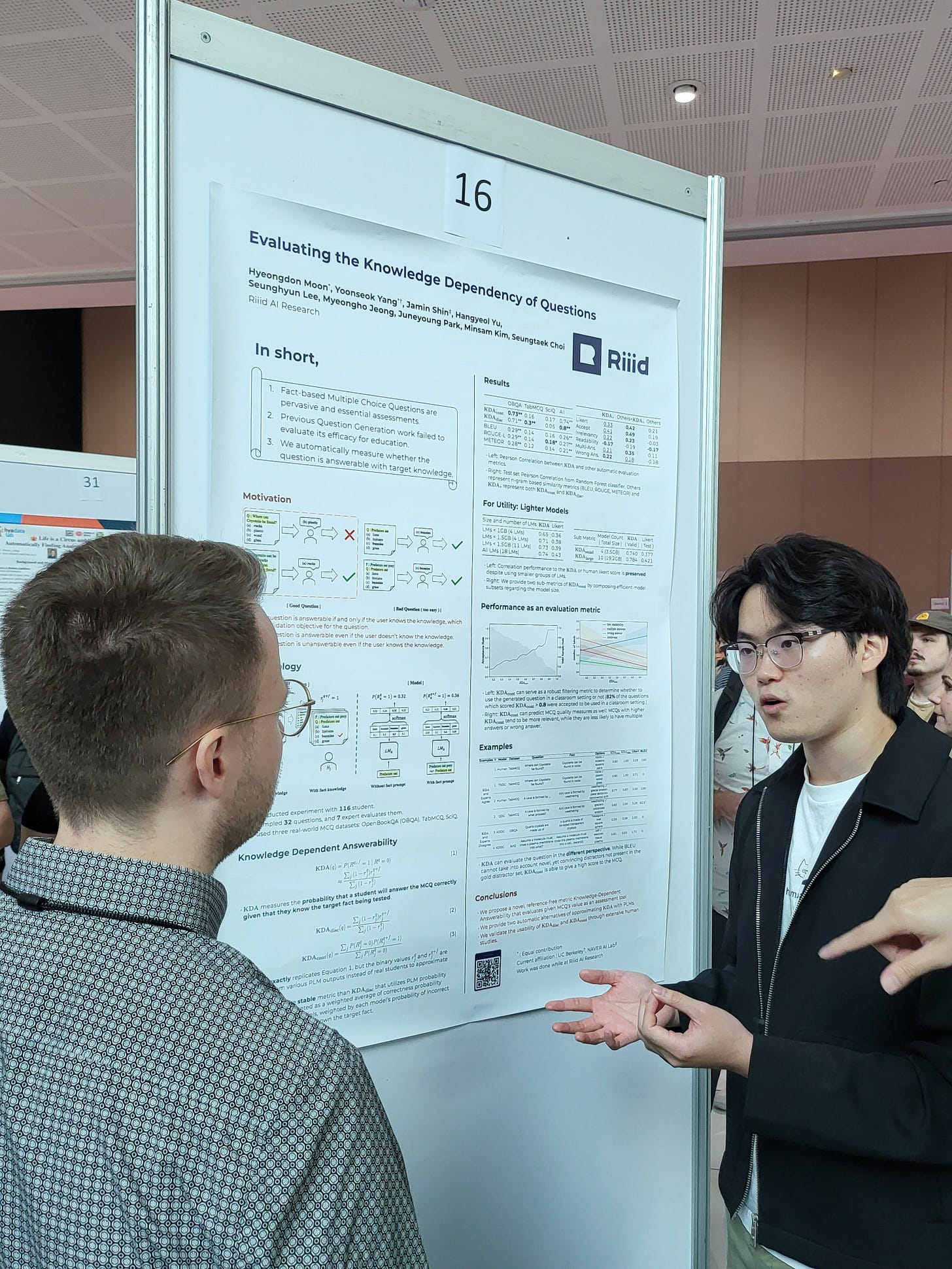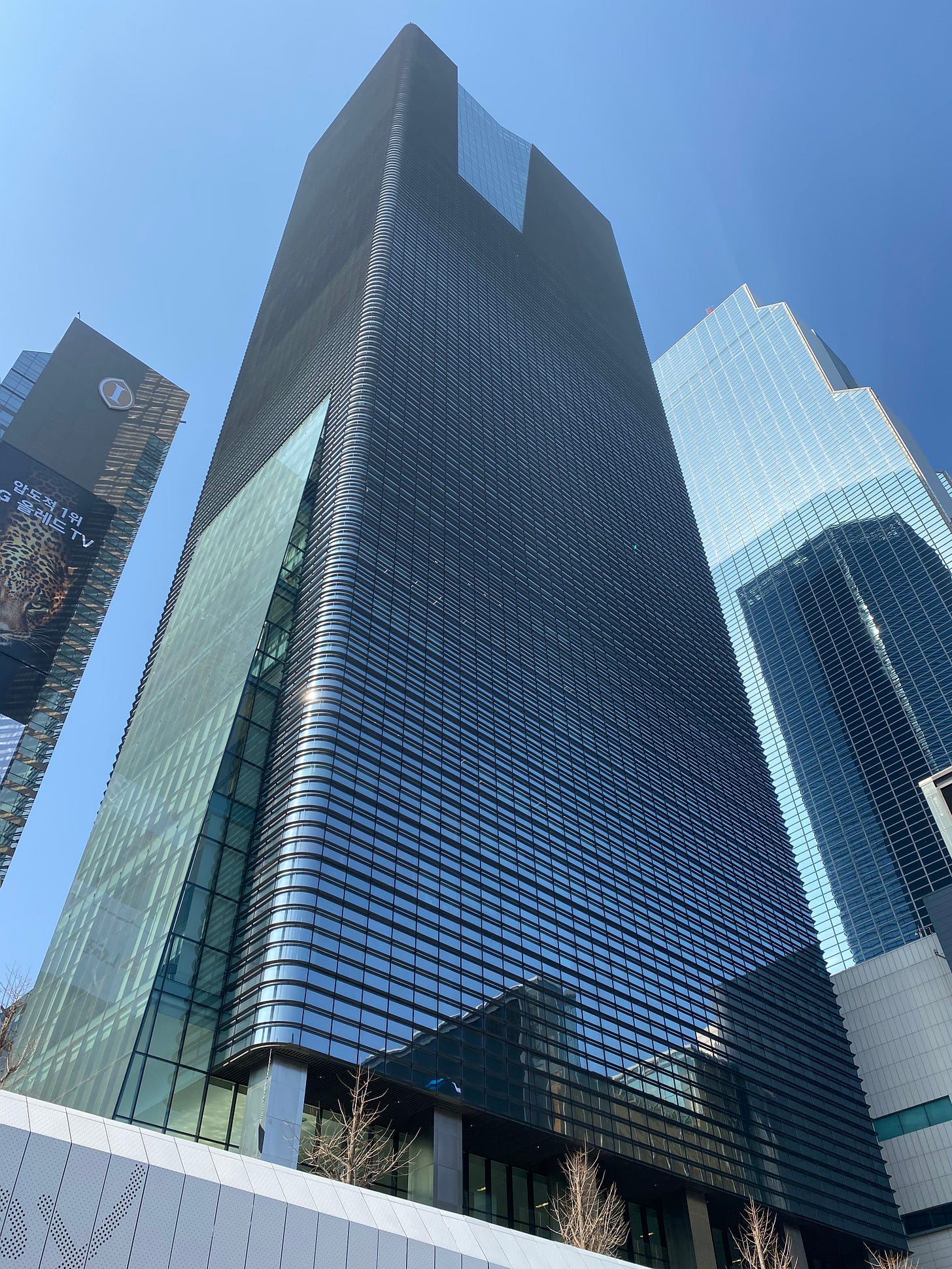A Military Service Unlike Any Other
From developing a #2 ranked App to publishing 1st author papers to top conferences
Yup, I’m starting Substack. Nothing special - I always wanted to write more and share more, ideally on my blog with a personal domain. While I own a domain for this, I decided to use Substack for better reach. If you are interested in future articles, please subscribe!
As a Korean citizen, I had to do my mandatory military service for 2 years. Looking back at 2022, the biggest milestone I’ve achieved is getting discharged from that service. Though I was very fortunate to work as a full-time SWE & Researcher(!!) in lieu of the service, I had to quit running my startup because of it. This is a record of the story of my last 2 years, where I strived to maximize my growth in a limited environment.
Joining Riiid
In March 2020 when COVID-19 hit, I was a freshman at UC Berkeley running a startup called Everest (the poster is still stuck in Soda Hall toilet, so if anyone’s curious go check it out :-)). However, when I began seeking pre-seed funding, one of the main questions I encountered (especially from Korean investors) was about my military service. Even I couldn't envision a long-term future for Everest if I had to worry about my military service constantly. So I decided to begin my service as fast as possible, in the summer of 2020.
But I wanted to spend those 2 years so well. After passing a Korean computer science exam and several interviews, I was offered the opportunity to work at a Korean software startup in lieu of military service to boost the Korean startup ecosystem. I chose Riiid, an AI-Education startup, because of the following reasons:
Had a mission that I strongly believed in
Had the potential to grow 10x within two years
Had an AI-based product
Was small enough for me to make an impact outside of my official role
But not so small that there’s enough risk of bankruptcy during my service
15 min commute from home
Year 1: Software Engineer
I joined the company in June 2020 as the youngest software engineer. Like most startups, we were pretty strapped for resources. I had to develop a production app from scratch after just six weeks in the company, using a programming language (Swift) that I started learning. I loved the environment of being constantly challenged and could feel my SWE skills improving daily.
I also got to experience some success and failure of our products - one app I developed was shut down after a few months, but the other (AIR:Math) was ranked #2 in the Education section of the Apple App Store and used by millions of users.
As one of the few software engineers who could speak English fluently, I was able to lead communication between the Korean and US engineering teams. This allowed me to learn about effective communication and also gave me the opportunity to meet frequently with the C-level executives of the US branch of the company.
Year 2: Research Scientist
While I was generally satisfied with my role as a software engineer at Riiid, I had a deep-seated desire that wasn't being fulfilled. I chose Riiid primarily because of its mission: using AI to get rid (implying the name Riiid) of inefficiency, inequality, and inconsistency in education. However, my role was very limited when it came to brainstorming how to use AI in our products or to solve real-world education issues, as I had very little knowledge of AI/ML. Riiid's AI models still felt like a black box to me.
So, shortly after working at Riiid, I began learning AI/ML on my own. I was accepted to Google Machine Learning Bootcamp and did some AI side-projects. I wanted to transfer from SWE to Research Scientist internally. The problem was, the minimum qualification for the position was a master's degree, and I had nothing to show for myself.
Then, a perfect opportunity presented itself. Riiid held the largest Kaggle competition of 2020, and I saw it as my chance to prove my competency. I enrolled in the competition and spent most of my free time developing models. After months of intense work, the team I led earned a Silver medal in the challenge with a score higher than the internal benchmark set by the Riiid research team. That's how I became the only college freshman research scientist at the company.
At first, I had much more to learn than I expected. From frameworks like PyTorch to concepts in linear algebra and probability, I again invested all of my free time in learning. Then, I began my first AI research after a few months. My desk was always cluttered with a mix of freshly printed papers and dirty ones, and half-empty coffee cups. I still distinctly remember working 110hrs/week a few days before the paper submission deadline.
Over the course of a year, I published two papers that were accepted to top conferences in NLP (NAACL 2022 and EMNLP 2022). As a research scientist in the industry, I was focused on conducting product-oriented research - research that would directly impact our products. For example, my first paper on an efficient training algorithm for LLM-based recommender systems was used to deploy a recommender model for millions of users in Riiid's main product.

Returning back to school
After completing my mandatory military service, I decided to return to UC Berkeley to be in the Bay Area during this exciting time in the AI scene, and connect with like-minded friends.
It feels weird seeing my freshman friends graduating. I will come back with a separate article about returning to campus after 2 years as well as my learnings in Riiid other than technical skills.
So if you are interested, please subscribe! Thank you for reading.









As someone who went back to Singapore for national service after fresher year in Australia, I resonate with the feeling of seeing friends graduate upon returning :')
Really cool experience you had!
너무 재밌게 읽었습니다.
2년 동안 고생 많으셨어요.